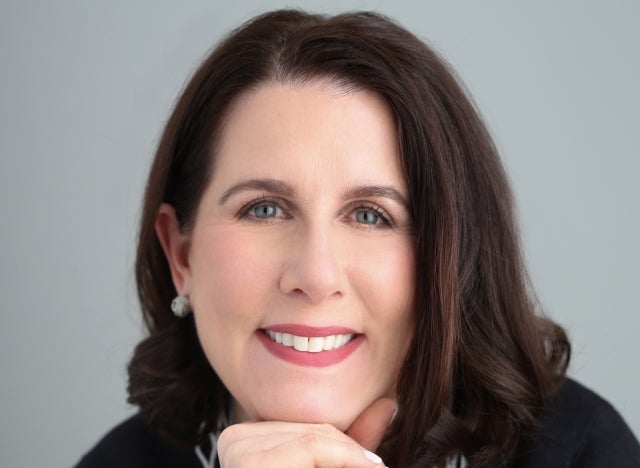Dr. Alissa Sklar tackles all things anxiety in presentation to Saint Monica parents

Parents at St. Monica Elementary School in NDG were in for a treat recently, as a renowned researcher, professor and award-winning feature writer Dr. Alissa Sklar shared her presentation Worried Sick: What Parents & Kids Need to Know about Anxiety. The workshop was held in conjunction with Youth Mental Health Awareness Week.
Dr. Sklar, who also runs the Montreal consultancy project Risk(within)Reason, waded through various articles and studies denoting a “marked and concerning” rise in anxiety levels in children, so much so that it has been determined that anxiety is the leading mental health issue amongst children.
Dr. Sklar says there is a distinction to be made, however, between experiencing anxiety and having an anxiety disorder.
“Everyone feels the anxiety of some kind,” said Dr. Sklar. “It is a normal reaction to stress. An anxiety disorder is a condition diagnosed by a medical professional. We need to be careful not to mix them up.”
She says the advent of COVID-19 has only intensified matters, with lockdowns, restrictions, and online learning reducing opportunities for children to socialize with others. The cancellation of major events or milestones and the lack of privacy at home also created tension. More and more children were depressed, unhappy, or more concerned about their health, she says. Children have also grown more accustomed to worrying about their family, finances, and their basic needs.
There are factors beyond the pandemic, however, that explain these feelings of anxiety. Dr. Sklar notes the cultural shift in parental styles and the increased dependence on technology from a younger age as mitigating factors. Anxious parents also typically rub off their behaviors onto their children, according to Dr. Sklar.
“Kids are sponges,” she said. “They are watching how their parents deal with fear or stress and they tend to mimic or internalize their parents’ reactions. Parents with more anxious kids are also more likely to accommodate their kid’s anxiety.”
Instead, the emphasis ought to be on teaching kids how to cope with things when they go wrong, she says.
“Active coping is something that either helps us tackle the problem or deal with the cortisol stress chemical in our bodies,” she says. “Active coping is writing in a journal or talking to your partner or a parent. It is shooting hoops or going for a run. There is a lot of research to show that explaining, showing, modeling, and practicing active coping mechanisms helps people deal with stresses and anxieties in a different way.”
Seventy percent of mental health disorders materialize in childhood or adolescence, with one in five children suffering from a disorder severe enough to impact their daily lives. This can manifest itself through the form of headaches, nausea, changes in sleep or appetite, and trouble concentrating or focusing on schoolwork, among others.
Dr. Sklar says this highlights the urgency of intervening rapidly before it is too late.
“The biggest difference we can make in people’s lives is to recognize and be aware of these things,” she said. “It is very treatable if we recognize and give our kids the tools to manage it. If we don’t treat, it can become a much bigger deal later on in lives. If you believe someone is at risk of harming themselves or others, you must seek help and speak up.”
Dr. Sklar advises parents speak to their child’s doctor and/or their guidance counselor or teacher at school immediately if their anxiety appears to be “excessive.”
Parents can find a link to Dr. Sklar’s interactive digital resource on anxiety here. You can also visit her website www.risk-within-reason.com for more information.
About the MHRC
The MHRC is made up of a multidisciplinary group of professionals from the Student Services Department. They aim to share their mental health knowledge and expertise with the EMSB community via school-based research. Prevention and intervention services are offered to students and staff in the form of drug abuse and violence prevention, crisis and trauma support, and behaviour management, among others.
About the English Montreal School Board
With a youth and adult sector population of more than 35,000 students, the English Montreal School Board (EMSB) is the largest English public school board in Quebec. Established on July 1, 1998, when the province created new boards along linguistic lines, the EMSB network consists of 77 schools and centres. For more details, visit the EMSB website at www.emsb.qc.ca.







